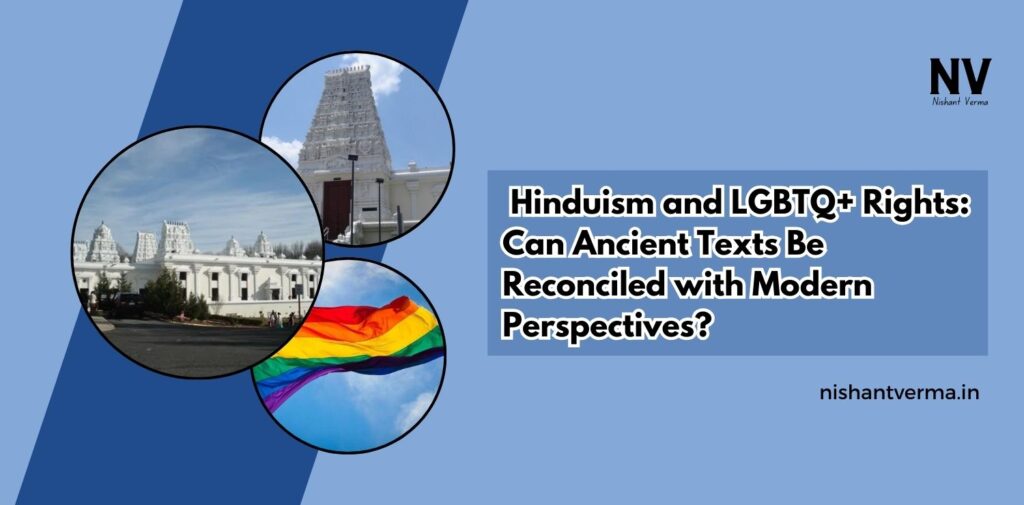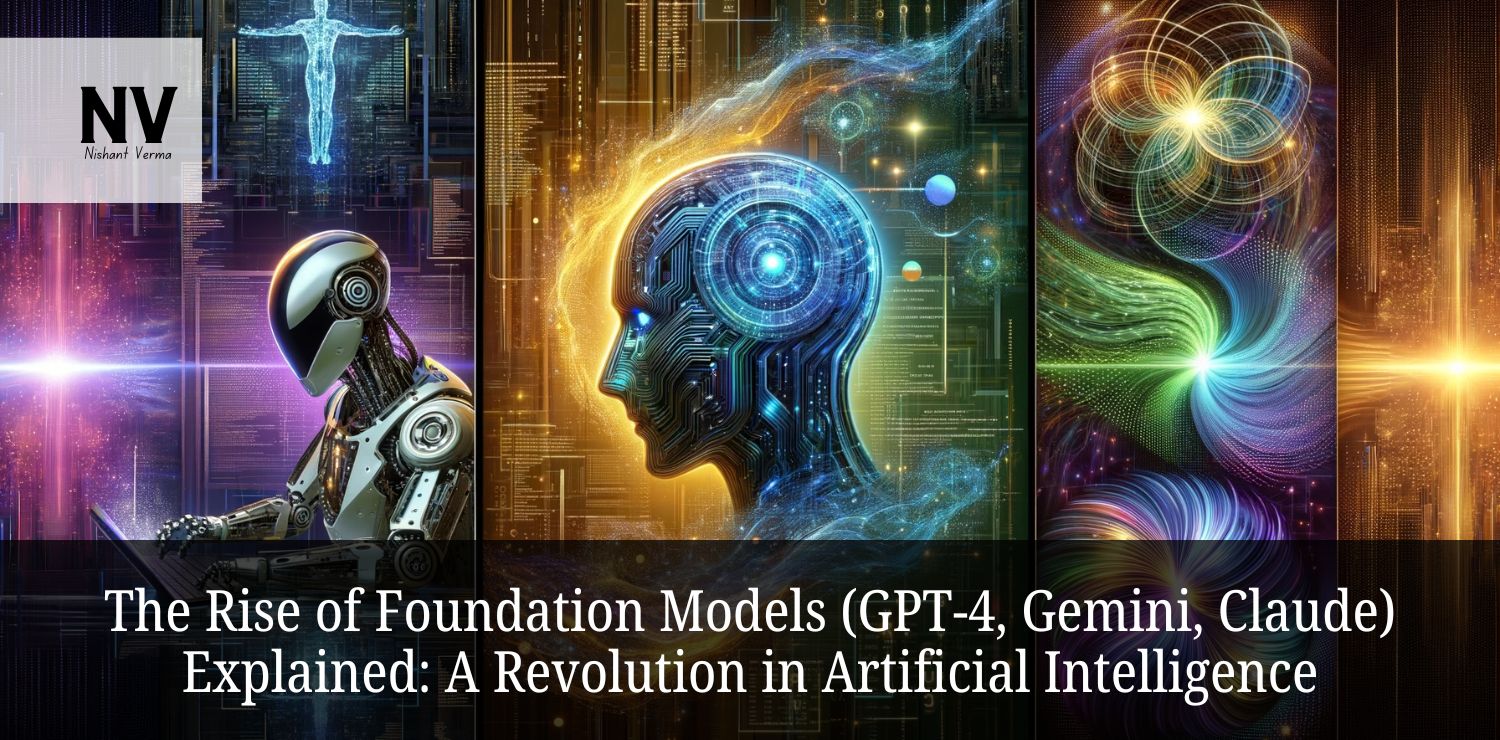Hinduism is one of the oldest religions in the world, with a rich and diverse set of beliefs, practices, and teachings. At its core, it focuses on concepts like karma (the law of cause and effect), dharma (righteous duty), and moksha (liberation from the cycle of birth and rebirth). With such an ancient tradition, many wonder how Hinduism views modern issues like LGBTQ+ rights. Can the teachings of ancient texts align with the current push for LGBTQ+ equality and acceptance? This article will explore that question by looking at what Hinduism says about gender, sexuality, and love, and how these ideas may relate to modern perspectives on LGBTQ+ rights.
Understanding LGBTQ+ Rights Today
The LGBTQ+ community includes people who identify as lesbian, gay, bisexual, transgender, queer, and others whose sexual orientation or gender identity falls outside of the traditional heterosexual and cisgender norms. In many parts of the world, LGBTQ+ people face discrimination, legal challenges, and social stigma. Over the past few decades, however, there has been a growing movement for equality, with many countries passing laws to protect LGBTQ+ rights. The fight for LGBTQ+ rights often centres around the issues of marriage equality, anti-discrimination laws, and the right to live openly without fear of persecution.
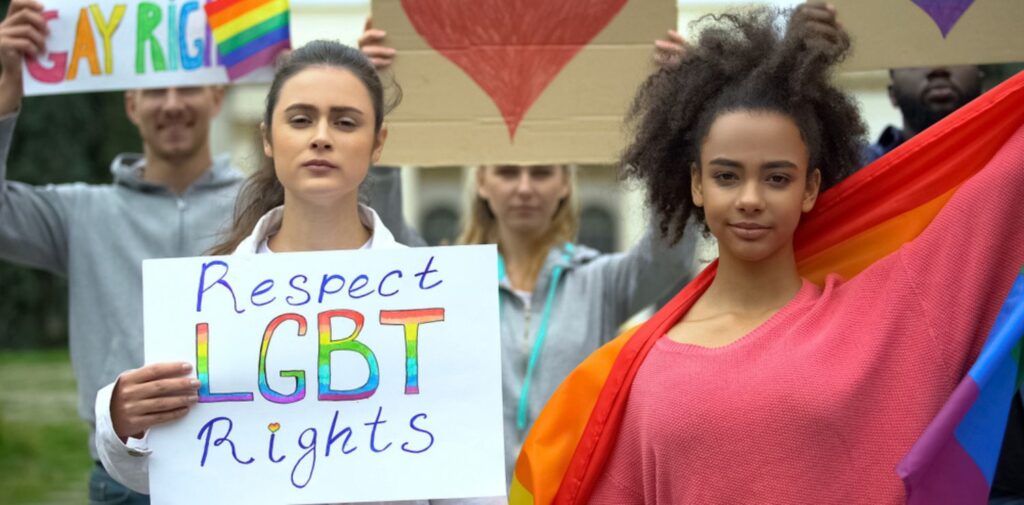
Hinduism’s View on Gender and Sexuality
Hinduism, unlike some other world religions, does not have a single central text or authority. Instead, it draws from various ancient scriptures, myths, and philosophies. Because of this diversity, Hinduism has a wide range of views on many subjects, including gender and sexuality.
Ancient Texts: A Complex View
In ancient Hindu scriptures like the Vedas, Upanishads, and Puranas, there are several references to sexual diversity and gender fluidity. For example, the god Ardhanarishvara, a form of Shiva, is depicted as half-male and half-female, symbolizing the union of opposites. This imagery suggests that Hinduism has long recognized that gender is not always binary. Similarly, in some ancient texts, the concept of hijras (a third gender) is acknowledged. Hijras have historically held a special place in South Asian culture and are mentioned in ancient Hindu texts as well.
Additionally, Hindu mythology contains many stories of gods and goddesses engaging in relationships that transcend conventional gender roles. For example, the love story of Krishna and Arjuna is interpreted by some as symbolizing deep emotional and spiritual bonds that go beyond traditional gender norms.
However, it’s important to note that not all Hindu scriptures or traditions are open to non-heteronormative relationships. Some texts, particularly those written during more patriarchal times, do take a more conservative view on sexuality and gender roles. But overall, the history of Hinduism is diverse enough to allow for different interpretations.
LGBTQ+ Rights in Modern Hinduism
In the modern era, Hindu perspectives on LGBTQ+ issues can vary widely. Some Hindu leaders and scholars have argued that the teachings of Hinduism support the acceptance and inclusion of LGBTQ+ people. They point to the diversity of gender and sexual expression found in ancient texts and emphasize that Hinduism encourages tolerance, respect, and compassion for all beings.
For instance, the well-known Hindu leader Swami Vivekananda spoke about the importance of embracing diversity and focusing on the spiritual essence of each individual, regardless of their external appearance or sexual orientation. His teachings on universal love and acceptance can be seen as supportive of LGBTQ+ rights.
More recently, in 2018, the Indian Supreme Court decriminalized Section 377, a colonial-era law that criminalized same-sex relations. This decision was hailed by many as a victory for LGBTQ+ rights in India, and several Hindu religious leaders and organizations expressed support for the ruling, stating that Hinduism does not oppose love between consenting adults, regardless of gender.
At the same time, there are still some voices within the Hindu community that hold conservative views on LGBTQ+ issues. These perspectives often argue that traditional marriage should be between a man and a woman, and they may express discomfort with same-sex relationships or gender nonconformity. However, these views are not universally held, and many argue that such conservative stances may be influenced more by cultural practices than by the core teachings of Hinduism itself.
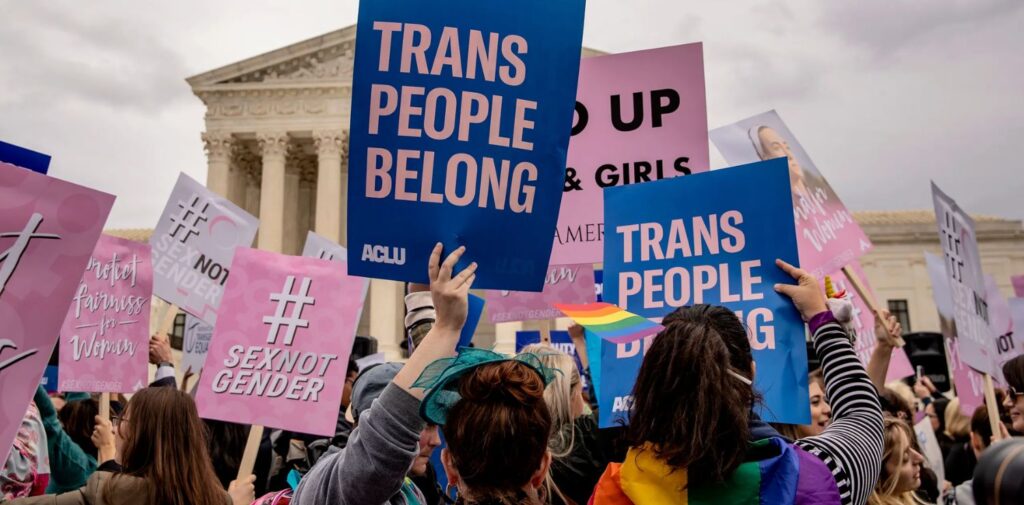
Reconciliation: Can Ancient Texts Align with Modern Views on LGBTQ+ Rights?
So, can Hinduism’s ancient texts be reconciled with modern perspectives on LGBTQ+ rights? The answer is not simple, but it’s important to recognize that Hinduism, like any religion, evolves. Ancient teachings are often interpreted in light of contemporary values, and new understandings can emerge from long-standing traditions.
Flexibility in Interpretation
One of the strengths of Hinduism is its flexibility. Because it does not have a single governing authority or dogma, different interpretations of its sacred texts are possible. The teachings of Hinduism emphasize the importance of inner spirituality and personal experience, which allows for a more inclusive understanding of gender and sexuality. Many Hindu thinkers today are re-examining ancient texts through the lens of modern human rights and equality, and they are finding that Hinduism’s core teachings about love, compassion, and respect for all beings can be applied to LGBTQ+ issues.
Role of Compassion and Non-Violence
The principles of ahimsa (non-violence) and dharma (righteous duty) are central to Hindu philosophy. These values encourage individuals to live in harmony with others, respect the dignity of every person, and treat everyone with kindness and empathy. LGBTQ+ individuals, like all people, deserve to live with dignity and respect, and many Hindu leaders and organizations now emphasize that supporting LGBTQ+ rights is consistent with these core teachings.
Hinduism teaches that love is divine, and that all human beings are manifestations of the same divine essence, regardless of their sexual orientation or gender identity. This idea resonates with the modern belief that love is a universal human right and should be free from discrimination.
Balancing Tradition with Progress
While ancient Hindu texts may contain a variety of views on gender and sexuality, many modern Hindus believe that the essential message of the religion—respect for all living beings and the pursuit of truth—supports the recognition of LGBTQ+ rights. Just as Hinduism has adapted over time to accommodate new understandings of the world, it can continue to evolve and support the rights and dignity of LGBTQ+ individuals.
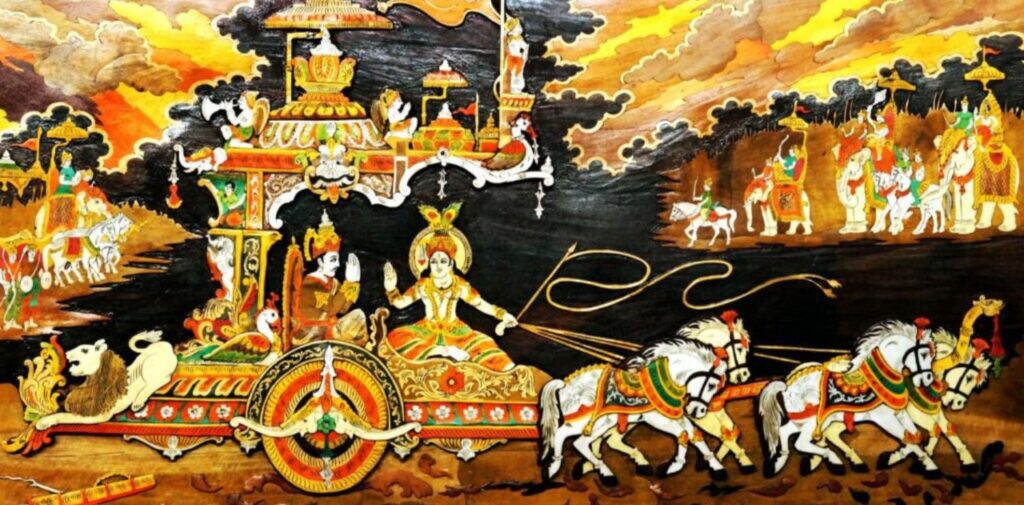
Moving Forward: What Can Be Done?
As societies around the world continue to debate LGBTQ+ rights, Hinduism offers valuable lessons on tolerance, compassion, and the importance of understanding the divine nature of all people. Here are some ways that the Hindu community can contribute to the movement for LGBTQ+ rights:
- Education and Awareness: Hindus can engage in conversations about the diversity of gender and sexuality in Hinduism’s ancient texts and modern interpretations. Sharing stories of LGBTQ+ inclusion from Hindu mythology and history can help challenge prejudices and foster acceptance.
- Supportive Leadership: Religious leaders who embrace inclusive teachings can play an important role in supporting LGBTQ+ rights within the Hindu community. By emphasizing the values of love, respect, and non-violence, they can help create a more welcoming environment for LGBTQ+ individuals.
- Community Building: Hindu temples and organizations can actively work to create spaces where LGBTQ+ individuals are accepted and celebrated. By promoting inclusivity within religious communities, Hinduism can lead the way in advocating for equality.
Conclusion: A Religion of Love and Acceptance
Hinduism, with its emphasis on love, compassion, and spiritual growth, has the potential to be a powerful ally in the fight for LGBTQ+ rights. While ancient texts may offer diverse views, the core teachings of Hinduism—respect for the divine in all beings and the pursuit of truth—align with modern values of equality and human dignity. As Hindu communities continue to evolve and reinterpret their traditions, there is great hope that Hinduism will fully embrace LGBTQ+ rights, allowing for a world where love is free from discrimination and every individual can live in peace and equality.
Hinduism’s rich diversity gives it the flexibility to evolve, and as more people recognize the need for inclusion, Hinduism’s core values of respect and compassion can help pave the way for a more accepting society for all people, regardless of their sexual orientation or gender identity.

